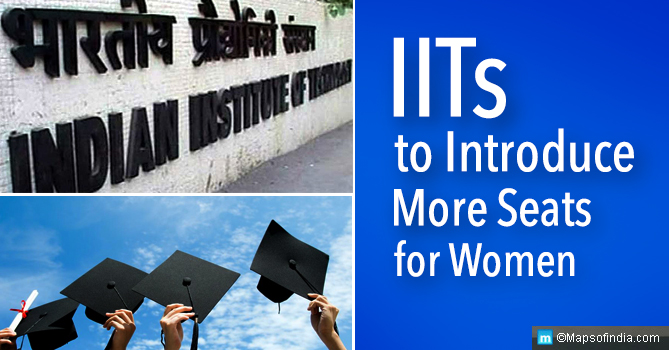The Indian Institutes of Technology (IITs) want more female representation among the students. The IITs have been the premier institutes of engineering but according to recent reports the ratio of male to female students in the institutions is skewed. In 2014, only about 8.8 percent of female students were admitted to the IITs. The following year some 9 percent were admitted, registering a marginal growth. But this is no reason to celebrate because by 2016 the ratio of female students gaining admission to the prestigious engineering schools dropped to 8 percent again.
20 Percent Supernumerary Seats For Women
The Union Human Resource Development Minister, Prakash Javdekar announced the launch of a new measure that shall aim at increasing the number of women studying at the IIMs from 8 percent to 20 percent. This announcement was made at the 51st Council of IITs meeting held in Mumbai but the decision was taken by the IITs Joint Admission Board (JAB). A supernumerary quota will now be introduced at these institutions that will provide additional seats meant only for female candidates. This does not mean that 20 percent seats will be reserved for women candidates. This supernumerary quota will only be activated if the admission of women into the IITs is found to be low. For example, if only 10 percent of the seats available in any year are filled by female candidates, the IITs will then release 20 percent additional seats and lower the entrance cut off grades to enable more women to apply for these additional seats.
Let’s Look At IIT JEE
To adequately address the issue of female representation in the IITs we must begin with the IIT JEE. The Joint Entrance Examination – Advanced (previously called Indian Institutes of Technology Joint Entrance Examination) is the entrance examination that needs to be cleared to gain admission into any of the 23 IITs. It is believed to be one of the toughest engineering entrance examinations in the country. The challenge is that only about 11-13 percent of the candidates who manage to clear the JEE are female. Unless one starts to look at the educational system in the country and the opportunities that female students get, the admissions problem can only be temporarily fixed.
Criticism
The idea of introducing supernumerary has attracted some criticism from the students of IIT. At a time when there is a pressing demand to do away with all reservation and quota systems and make all admissions to educational institutions based on merit, the need for an additional 20 percent reservation has been questioned. Currently, almost 50 percent seats in these institutions are reserved for SC, ST, and OBC candidates (15%, 7.5%, and 27 % respectively). Now by adding another quota, the institutions are merely dissuading deserving candidates from applying to the IITs. This will result in diluting the quality of research in these institutions. More importantly such reservations and quotas are greatly unfair to meritorious students from non-reserved categories.
Issues To Watch Out For
Merely adding seats reserved for female candidates is not enough to ensure a better representation of women in the IITs, say the students. The colleges also need to look at a number of other factors such as adding hostels and lodging facilities where female students can stay in a secure environment. Adding more female candidates will need a larger restructuring not only in these institutions but also in the industries that hire their workforce from these institutions.
The fact that there are merely 8-9 percent female students in the IITs, whereas engineering colleges across the country have a 28 percent female representation, is indeed worrying. The new quota system is a great initiative to provide more opportunities and to eliminate bias during counseling. It is, however, imperative that a greater framework be established where women’s education can become a level playing platform. The culture that enables any meritorious student to find opportunity in this country, irrespective of caste, religion, or gender, must be promoted.
Read More…






